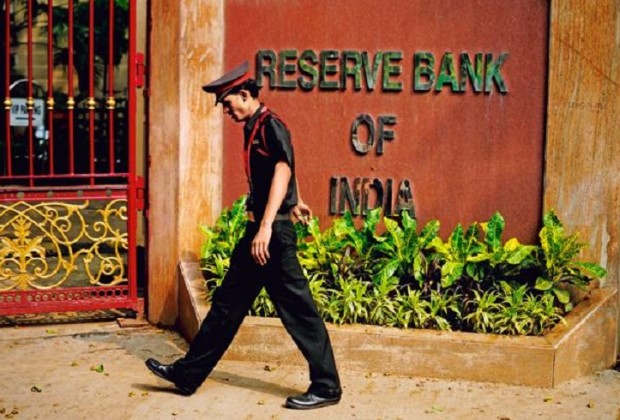Latest Posts
-
News 0
China’s influence silences Asia on yuan peg
China’s increasing regional influence will keep Asian governments from pressuring the world’s fastest growing economy into letting its currency strengthen for fear of economic or political repurcussion. China has repeatedly said a decision on unshackling the yuan would depend on domestic conditions, after effectively pegging it to the US dollar for the past 20 months, even while it is under threat by Washington of being labled a “currency manipulator” in April. Policymakers from Bangkok to Tokyo told Reuters they are unwilling to challenge China on its currency, giving Beijing some diplomatic breathing room in the face of pressure fro...On March 29, 2010 / By Kurt Osterberg -
News 0
Taiwan using China trade deal to sell foreign FTAs
Taiwan has leveraged its goal of a landmark trade deal with China to open talks with Japan, the US and other powers on free trade deals expected to boost the long-isolated island economy, officials have declared. Appealing to countries that have been barred by Taiwan’s political rival China from signing FTAs with the island, Taiwan has hinted to wary foreign governments that Beijing is unlikely to protest once the two sides sign their own trade deal. Taiwan has talked to Japan, the US and Singapore, with Europe and the Association of Southeast Asian Nations also on the list, Hu Chung-ying, deputy minister of the Council for Economic Plannin...On March 26, 2010 / By Kurt Osterberg -
News 0
Dubai in $9.5bn debt offer, no new Abu Dhabi aid
The Dubai government unveiled plans to recapitalise its indebted Dubai World flagship and repay Nakheel bonds in full, injecting what it said was $9.5bn in new funding, but without new aid from Abu Dhabi. In a statement, the government said $5.7bn in remaining funds from a loan made by Abu Dhabi would provide the lion’s share of the overall $9.5bn and would also include what it called “internal Dubai government resources”. “There is no new money from Abu Dhabi,” said a government official on a conference call. “This proposal is based on amounts remaining from the loans provided previously by the government of Abu Dhabi and from in...On March 25, 2010 / By Kurt Osterberg -
News 0
Central bank autonomy in spotlight post-crisis
Here and there around the world, governments are urging central banks to ease the pain of belt-tightening – and ward off the risk of an economic relapse – by taking their time to shrink balance sheets that have billowed during the financial crisis. The risk for markets is clear: if supine central banks are unwilling to stand up to domineering politicians, investors will take fright at the threat of inflation and bid up interest rates, short-circuiting the very recovery that governments crave. Yet it’s fair to ask in the light of experience whether the conventional wisdom is right that independence is the be-all and end-all for a central...On March 25, 2010 / By Kurt Osterberg -
News 0
China official rejects US complaints on currency
Chinese Vice Commerce Minister Zhong Shan, in Washington at a time of heightened US-China trade and political tensions, told business leaders that changing the exchange rate was not the way to fix a huge bilateral trade imbalance. “Revaluing the renminbi is not a good recipe for solving problems,” he told the US Chamber of Commerce, according to a transcript made available by the US business group. A growing number of US economists estimate China’s currency is undervalued by up to 40 percent. They say that gives China an unfair price advantage in international trade, takes jobs away from other countries and adds to global financial dist...On March 24, 2010 / By Kurt Osterberg -
News 0
Ghana sees $800m annual budget boost from oil
The figures, in a website survey asking Ghanaians how the windfall should be used, underline that proceeds from output at its Jubilee field due to start late this year will only transform the poor West African state if used carefully. Using a 10-year average price of oil at $65 barrel, the ministry predicted that annual government revenue from oil and gas would average $800m between 2011-2029, rising from $490 million in 2011 to a $2bn peak in 2017. The projection was based on the assumption that Ghana will produce 500 million barrels of oil over the next 20 years, more modest than an earlier official estimate of 800 million barrels of reserv...On March 24, 2010 / By Kurt Osterberg -
News 0
Japan scales back privatisation of behemoth bank
The Japanese government has scaled back its privatisation plan for Japan Post to hold more than a third of its shares, keeping a grip on the mammoth state-owned financial conglomerate that is the single largest holder of government bonds. Japan Post is the country’s biggest financial institution, with financial assets of about ¥300trn ($3.3trn) – more than the GDP of France. It holds about a third of the near ¥700trn Japanese government bond (JGB) market, thus making it potentially pivotal in supporting Japan’s deteriorating public finances. The six-month old Democratic Party-led government said it plans to roughly double the limit on...On March 24, 2010 / By Kurt Osterberg -
News 0
UK, Germany to press for global bank risk tax
Months after British Prime Minister Gordon Brown fronted a range of ideas for getting banks to pay for their own rescues, his Finance Minister Alistair Darling said more countries now agree on the need for an international systemic tax on banks. “This must be brought forward quickly, as I will urge international finance ministers in Washington next month,” Darling told Britain’s parliament. “I agree with all those who think that such a tax should be internationally co-ordinated.” If a levy on UK banks is imposed in the same way as a planned US levy of 0.15 percent annually on total assets, it would raise up to £3.6bn a year, report...On March 24, 2010 / By Kurt Osterberg -
News 0
Pfizer, Glaxo sign 10-year vaccine deal for poor
The deal, brokered by the Geneva-based GAVI Alliance (Global Alliance for Vaccines and Immunisation), is the first under a new scheme called an Advance Market Commitment (AMC) which guarantees a market for vaccines supplied to poor nations but sets a maximum price drugmakers can expect to receive. GAVI estimates that the introduction of new vaccines against pneumococcal disease – which causes serious illnesses such as pneumonia and meningitis – could save around 900,000 lives by 2015 and up to seven million lives by 2030. It was reported on March 11 that several leading drug firms had made long-term commitments in the agreement. Glaxo and...On March 23, 2010 / By Kurt Osterberg -
News 0
S&P raises Morocco’s rating on low debt
The agency said in a statement it had raised Morocco’s long-term foreign currency sovereign credit rating to ‘BBB-‘ from ‘BB+’, and its long-term local currency sovereign credit rating to ‘BBB+’ from ‘BBB’. Morocco’s combined foreign and domestic debt stock was slashed as a proportion of GDP to 48 percent last year from 68 percent in 1998, according to the government’s figures. “The upgrade reflects our view of the Moroccan government’s improved economic policy flexibility as a result of its track record in reducing the country’s fiscal and external debt burdens over the past decade,” said Standard & Poor’...On March 23, 2010 / By Kurt Osterberg
Top Posts
-
 The Importance for Individuals to Use Sustainable Chemicals
The Importance for Individuals to Use Sustainable Chemicals
-
 Small Businesses: Finding the Right Candidate for the Job
Small Businesses: Finding the Right Candidate for the Job
-
 How to Write the Perfect Thank You Letter After Your Job Interview
How to Write the Perfect Thank You Letter After Your Job Interview
-
 3 Best Large-Cap Blend Mutual Funds For Enticing Returns
3 Best Large-Cap Blend Mutual Funds For Enticing Returns
-
 China suspected in massive breach of federal personnel data
China suspected in massive breach of federal personnel data








